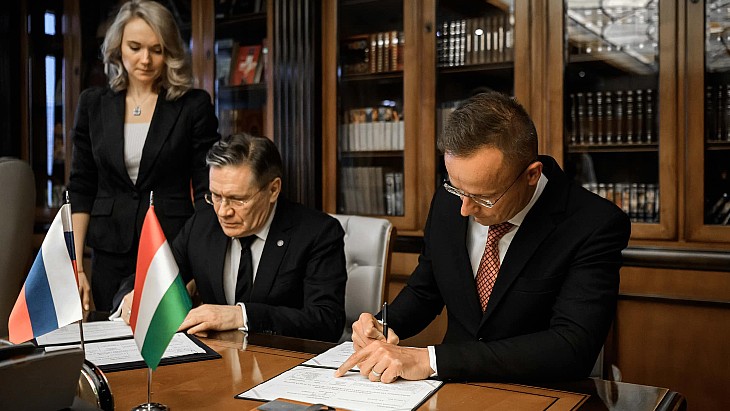Hungary has said it intends to press ahead with its plans for a new Russian-built nuclear power plant at Paks II, despite the Russian war with Ukraine and the European Union (EU) imposition of a range of sanctions against Russia.
Writing on Facebook Szijjarto said that the EU had recognised that there was "no energy security and there is no European green transition without nuclear energy ... we have to push for Paks II to be built as soon as possible despite all kinds of difficulties, because the sooner the new blocks are built, the sooner we will be protected from the completely insane price movements of the international energy market".
He said that, after going through "long negotiations", agreement had been reached on amendment of the construction and financing contract for Paks II, saying that even without the war and sanctions "life and the technological situation have changed so much" in the past nine years that the contracts needed amending.
Although details of the changes were not given, Szijjarto said that the European Commission would have to approve the changes.
In its report of the meeting, Rosatom said "the parties discussed further steps in the implementation of the Paks II construction project, as well as other aspects of multifaceted cooperation in the nuclear sector".
"At present, general construction work continues on the site of the future Paks II station for the construction of auxiliary buildings and facilities. The process of obtaining licence documentation for certain types of work and equipment manufacturing has been launched. The main licence for the construction of the Paks II NPP was issued by the Hungarian regulator in August 2022."
The Paks II project was launched in early 2014 by an intergovernmental agreement between Hungary and Russia for two VVER-1200 reactors to be supplied by Rosatom, with the contract supported by a Russian state loan to finance the majority of the project. The application was submitted in July 2020 to construct Paks II alongside the existing Paks plant, 100 kilometres southwest of Budapest on the banks of the Danube river. Procedures allowed Hungary's National Atomic Energy Office 12 months to make its decision, with the possibility of extension by three months. That extension was triggered in July 2021, but the construction licence was issued more than a year later, in August 2022.
In January, Hungary's Energy Minister Csaba Lantos said the Paks II plant was now expected to be completed in 2032.
Last month Szijjarto said that Hungary was discussing increasing the role of France's Framatome, which had been due to be part of a French-German consortium with Siemens Energy to supply the control technology system. The minister said the German government's failure to approve Siemens Energy's participation was "absolutely unfair ... energy supply is a matter of national competence and the security of energy supply is a matter of sovereignty ... in order to have a Western European control technology system at the Paks nuclear power plant, we will further expand Hungarian-French nuclear cooperation".
The existing four units at Paks are VVER-440 reactors that started up between 1982 and 1987 and they produce about half of the country's electricity. Their design lifetime was for 30 years but that was extended in 2005 by 20 years to 2032 and 2037. In December, the Hungarian Parliament approved a proposal to further extend their lifespan, which means preparations can begin on operating the nuclear power plant into the 2050s.








_94566.jpeg)






